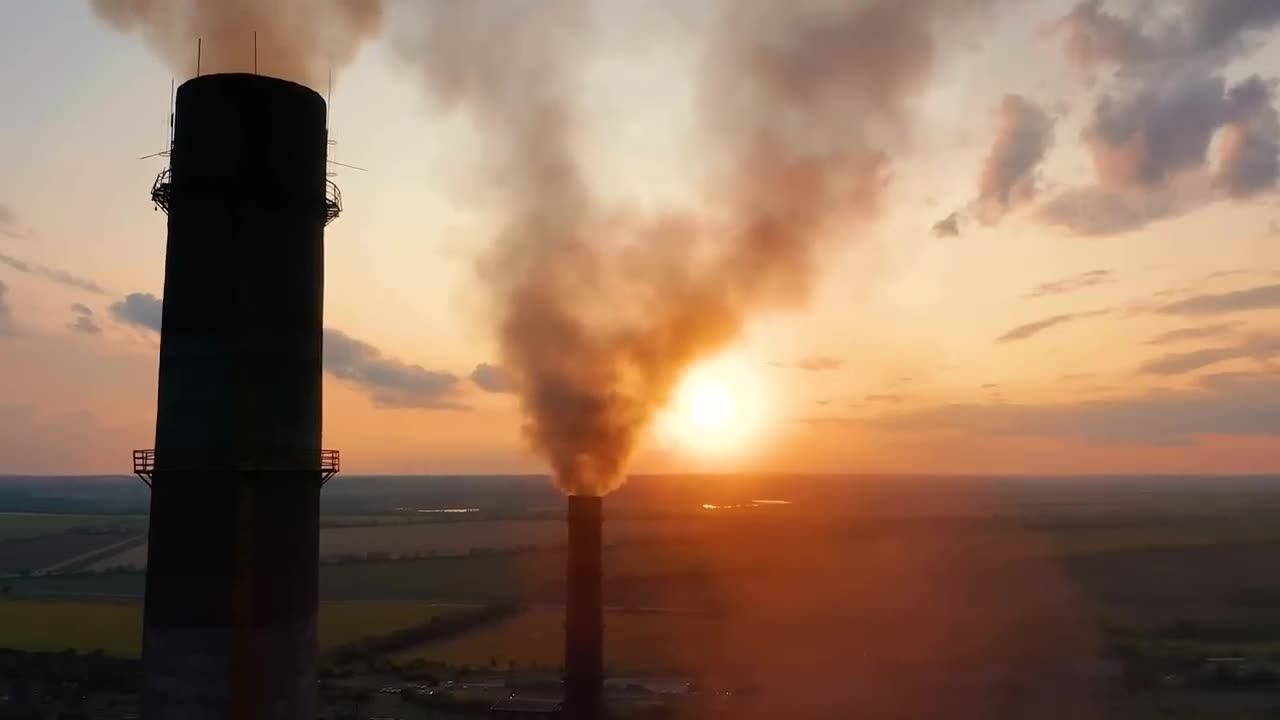Premium Only Content

The Complex Interplay: Exploring the Nexus Between COVID-19 and Climate Change | Environment
The outbreak of the COVID-19 pandemic in early 2020 had a profound impact on various aspects of global society, from public health to the economy. Among the areas that experienced unexpected shifts was the environment, particularly in relation to climate change. This article delves into the intricate relationship between the COVID-19 pandemic and climate change, examining both short-term effects and potential long-term implications.
In the wake of lockdowns and travel restrictions imposed to curb the spread of the virus, many industrial activities were halted, leading to a temporary reduction in air pollution and greenhouse gas emissions. Clear skies were seen over urban centers that had long been shrouded in smog, and satellite images showed decreases in nitrogen dioxide levels. This unprecedented halt in human activity offered a unique opportunity to observe how reductions in emissions might impact air quality and, consequently, the climate.
However, the pandemic also disrupted efforts to combat climate change. Many environmental initiatives were put on hold as governments shifted their focus and resources toward managing the health crisis. International climate negotiations were postponed, and renewable energy projects faced delays due to supply chain interruptions and financial constraints. The economic downturn resulting from the pandemic prompted some to prioritize short-term recovery over long-term sustainability.
Furthermore, the pandemic's aftermath revealed a more nuanced picture of its effects on climate change. As economies reopened, there were concerns that efforts to rebound could lead to a surge in emissions, potentially erasing the gains made during the lockdowns. The sudden increase in single-use plastics, driven by health and hygiene concerns, also highlighted the tension between public health and environmental sustainability.
This article also explores the parallels between the responses to the pandemic and climate change. It discusses how both challenges require global cooperation, science-based decision-making, and proactive measures to prevent future crises. The pandemic underscored the importance of scientific expertise and the value of international collaboration, which are also vital for effectively addressing climate change.
COVID-19, pandemic, climate change, environmental impact, air pollution, greenhouse gas emissions, lockdowns, economic recovery, sustainability, renewable energy, global cooperation, public health, science-based decision-making, environmental initiatives.
-
 8:08
8:08
MattMorseTV
14 hours ago $6.63 earnedThe USA - China TRADE WAR just went NUCLEAR.
11.6K23 -
 20:22
20:22
Real Estate
7 days ago $1.08 earnedNumber 1 Indicator Home Prices ARE ABOUT TO CRASH
1.56K2 -
 30:09
30:09
Afshin Rattansi's Going Underground
17 hours ago‘Gaza Will Haunt Israel for Generations’- Mika Almog Granddaughter of Former President Shimon Peres
3.42K4 -
 15:36
15:36
Nikko Ortiz
12 hours agoBring Back Public Shaming...
5.74K6 -
 2:43:41
2:43:41
Side Scrollers Podcast
18 hours agoAsmongold Says The Online Left Are “ANIMALS” + Hasan Collar-Gate Gets WORSE + More | Side Scrollers
12.9K11 -
 1:33:41
1:33:41
Dinesh D'Souza
2 days agoThe Dragon's Prophecy Film
81.9K58 -
 LIVE
LIVE
Lofi Girl
2 years agoSynthwave Radio 🌌 - beats to chill/game to
262 watching -
 44:08
44:08
The Why Files
6 days agoThe CIA, Men in Black and the Plot to Take Out JFK | The Maury Island Incident
46.5K65 -
 2:07:23
2:07:23
TimcastIRL
9 hours agoTrump SLAMS China With NEW 100% Tariff, Stocks & Crypto TUMBLE | Timcast IRL
291K152 -
 5:15:25
5:15:25
SpartakusLIVE
10 hours agoBF6 LAUNCH DAY || WZ and BF6 followed by PUBG - The PERFECT Combo?
61.4K3